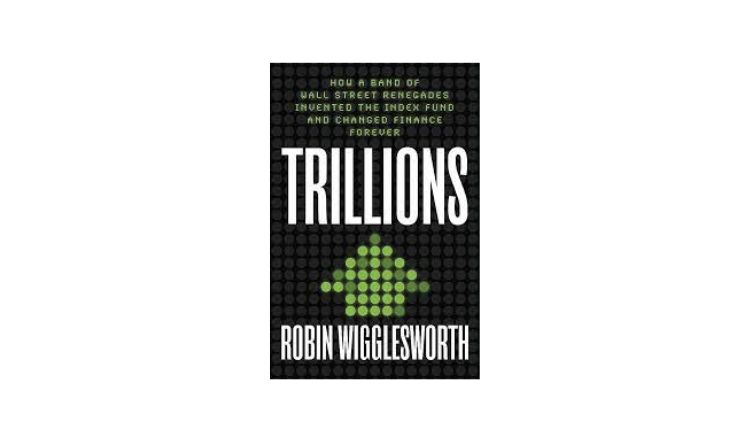“Trillions: How a Band of Wall Street Renegades Invented the Index Fund and Changed Finance Forever” is a book by Robin Wigglesworth that delves into the fascinating history and impact of index funds on the world of finance. In this book, the author highlights several key takeaways that shed light on the evolution of index funds and their transformative influence on the investment landscape.
- The Birth of Index Funds: The book traces the origins of index funds back to a small group of innovative financial thinkers, notably John Bogle, who founded Vanguard Group. It showcases how these renegades challenged the conventional wisdom of actively managed mutual funds by introducing a passive investment approach.
- Efficiency and Cost-Effectiveness: One of the primary takeaways is the emphasis on the efficiency and cost-effectiveness of index funds. By tracking a market index rather than actively selecting individual securities, index funds typically offer lower fees and expenses, making them an attractive choice for investors seeking long-term, low-cost investment options.
- The Power of Simplicity: Index funds champion simplicity in investment strategies. They provide investors with exposure to a broad market or specific asset class without the need for constant portfolio management and stock picking. This simplicity has made them accessible to both novice and experienced investors.
- Broad Market Diversification: The book underscores the importance of diversification and how index funds achieve this by providing exposure to a wide range of assets within an index. This diversification helps reduce risk and minimize the impact of individual stock or sector underperformance.
- Performance and Consistency: Trillions highlights the consistent performance of index funds over the long term when compared to many actively managed funds. While active managers aim to beat the market, index funds aim to match it, and their results have often been competitive, especially after accounting for fees.
- Impact on the Financial Industry: The book also explores the significant impact index funds have had on the financial industry. As the popularity of these funds grew, they forced traditional asset managers to reassess their fee structures and investment strategies, leading to a broader trend toward lower-cost, passive investing.
- Investor Empowerment: Trillions underscores how index funds have empowered individual investors by providing them with a straightforward and cost-effective way to participate in the financial markets. This democratization of investing has been a driving force behind the index fund revolution.
- Long-Term Investment Approach: Index funds encourage a long-term investment mindset. They discourage frequent trading and market timing, promoting the idea that patient, buy-and-hold strategies can be more effective in accumulating wealth over time.
- Challenges and Concerns: The book doesn’t shy away from discussing some of the challenges and concerns associated with index funds, such as potential concentration of market power among a few large index providers and the impact of passive investing on market efficiency.
In conclusion, “Trillions” offers a comprehensive look at the history, benefits, and impact of index funds on the world of finance. It emphasizes how these innovative financial instruments have reshaped investment strategies, benefited investors through lower costs and simplicity, and played a pivotal role in changing the landscape of the financial industry. Whether you are a seasoned investor or someone new to finance, this book provides valuable insights into the evolution of investing and the enduring relevance of index funds in the modern financial world.














































![An In-Depth Look at Jake and Gino's Coaching Program [A Review]](https://allaboutmultifamilyinvesting.com/wp-content/uploads/2023/10/AAM-BMP-Blog-Covers-750-×-422px-6.jpg)


![Email Marketing Tips for Multifamily Real Estate Syndicators to Raise Capital [Templates included]](https://allaboutmultifamilyinvesting.com/wp-content/uploads/2023/09/AAM-BMP-Blog-Covers-750-×-422px-4.jpg)






![The Richest Kids In America [Book Review]](https://allaboutmultifamilyinvesting.com/wp-content/uploads/2023/09/AAM-BMP-Blog-Covers-750-×-422px-84.jpg)
















